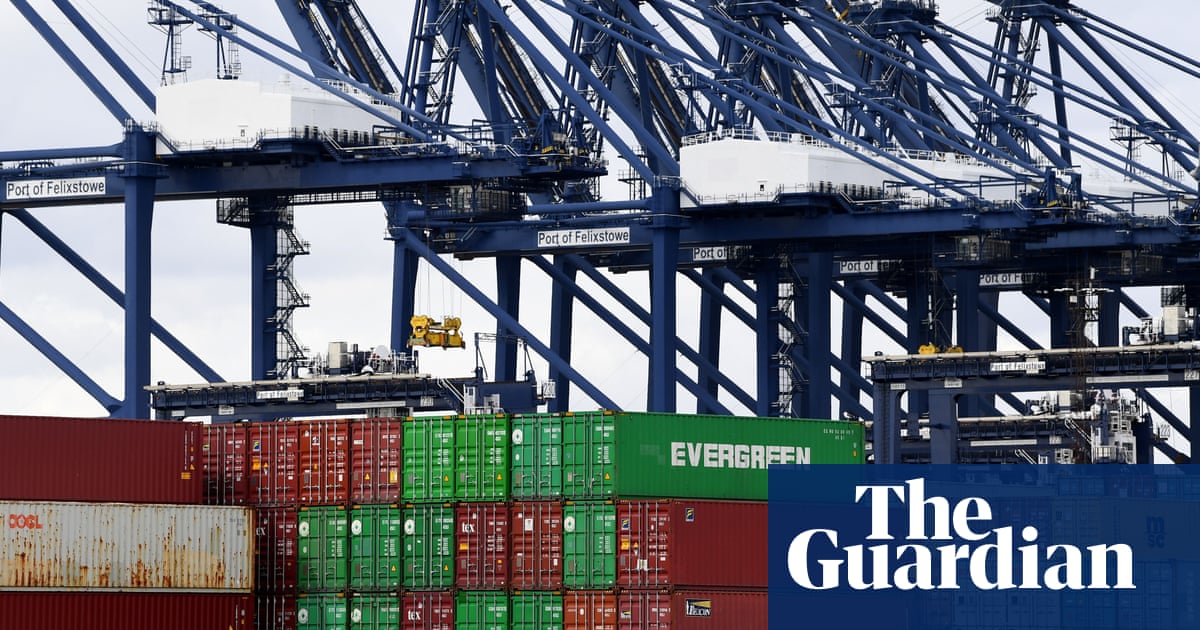
UK ministers are on damage limitation exercises with their Japanese counterparts this week after reportedly angering Tokyo with their tactics over a new post-Brexit trade treaty. This faux pas, which followed China’s abrupt cancellation of a UK ministerial trip this week, underlines the big challenges that London now has with negotiating enhanced economic and political relationships in Asia and beyond before “Brexit Day” on March 29.
Take the example of this week’s UK-Japan trade talks, which have seen Tokyo taking diplomatic umbrage at what has been reported as the “high-handed” approach of Foreign Secretary Jeremy Hunt and International Trade Secretary Liam Fox. The desire of Fox and Hunt to try to secure a speedy agreement with Japan — with their “time is of the essence” calls — backfired, prompting Japan to consider postponing the talks.
This comes after Tokyo had already decided against replicating in a post-Brexit UK trade treaty the terms of the trade agreement Japan recently reached with the EU. Tokyo is instead reportedly seeking a tougher stance amidst the alarm of many Japanese firms, who employ some 140,000 UK-based employees, over the prospect of a no-deal Brexit withdrawal next month.
The diplomatic damage with China, however, could be even more significant for the UK, at least in the short term. A trip by Chancellor Philip Hammond to Beijing this week was canceled after Defense Secretary Gavin Williamson made last week what was perceived by Chinese officials to be a saber-rattling speech, in which he asserted that London could deploy an aircraft carrier in the Pacific for its first operational cruise in 2021. Such a move would be sensitive for Beijing, in part because it is involved in disputes with neighboring countries over territorial claims in the South China Sea.
While there has been no public confirmation of the London-Beijing spat, the Chinese ambassador reportedly raised his concerns about Williamson’s speech with the UK Foreign Office. Moreover, former Chancellor George Osborne, who was a key architect of the so-called UK-China “golden era” in relations since 2015, criticized the mixed messages coming from Prime Minister Theresa May’s team over whether Beijing is an economic partner or military threat.
While Hammond’s trip could yet be rescheduled, the latest skirmishes with Tokyo and Beijing highlight the delicate diplomatic balancing act that London is engaged in with its post-Brexit diplomacy. China is a good case in point, given that the 2016 Brexit vote has only increased the emphasis the UK is putting on consolidating ties with Beijing.
Through this Brexit lens, the most important element of the bilateral relationship with China is economics. The UK has received, in recent years, the largest amount of Chinese foreign direct investment of any EU country, and is one of Beijing’s -top trade partners in Europe, after Germany. Meanwhile, China has been the UK’s second-largest non-EU trade partner.
The recent spats with Beijing, and indeed Tokyo, underline the post-Brexit balancing act the UK government faces in its desire to warm ties.
Andrew Hammond
The pre-eminence of economics in bilateral ties has been heavily underscored in recent UK trips to China, including one by May last year that sought to demonstrate the potential for post-Brexit trade ties from infrastructure, green finance and technological innovation. Take the example of UK energy and technology businesses, which are eager to gain opportunities in the massive Chinese market, where the UK is well positioned as a leader.
Yet, important as the economic realm is in bilateral relations, security issues are important too. Here, China has tried to expand military cooperation with the UK, including sending warships to London for a tour for the first time in 2017. It is in this context that Williamson’s speech last week will have troubled Beijing.
For many, it might appear that the bilateral relationship is overwhelmingly one-way, especially given the Chinese economy is now a multiple of that of Britain’s. However, for all that Beijing may be the more powerful partner, it is grateful to the Conservative government for ratcheting down, in public at least, human rights concerns about China, especially after bilateral relations temporarily went into a deep freeze in 2012, when then-Prime Minister David Cameron met with the Dalai Lama.
While this stance is certainly not without controversy, including with Labour’s leader Jeremy Corbyn, who raised human rights issue with Xi Jinping in 2015, Brexit means that the May team increasingly believes that enhancing ties with Beijing is in the UK’s national interest. Barring ill health, Xi will be in power well into the 2020s and, especially with Brexit, it is widely viewed by Conservatives that there is an opportunity to develop a relationship for years to come.
In this context, Washington has previously raised concerns about the degree to which London is perceived to be cozying up to China, especially under the Cameron government, when Osborne pledged to make the UK “China’s best partner in the West.” This ruffled the feathers of the Obama administration following the UK’s decision to become a founder member of the Asian Infrastructure Investment Bank. An unnamed senior official warned “about a trend toward constant (UK) accommodation of Beijing, which is not the best way to engage a rising power.”
Taken overall, the recent spats with Beijing, and indeed Tokyo, underline the post-Brexit balancing act the UK government faces in its desire to warm ties. With the dominance of economics in bilateral relations with China, security and human rights issues will continue to prick Beijing, as Williamson’s speech showed, and the UK government remains under domestic and international scrutiny on these issues.
• Andrew Hammond is an Associate at LSE IDEAS at the London School of Economics
Disclaimer: Views expressed by writers in this section are their own and do not necessarily reflect Arab News" point-of-view












